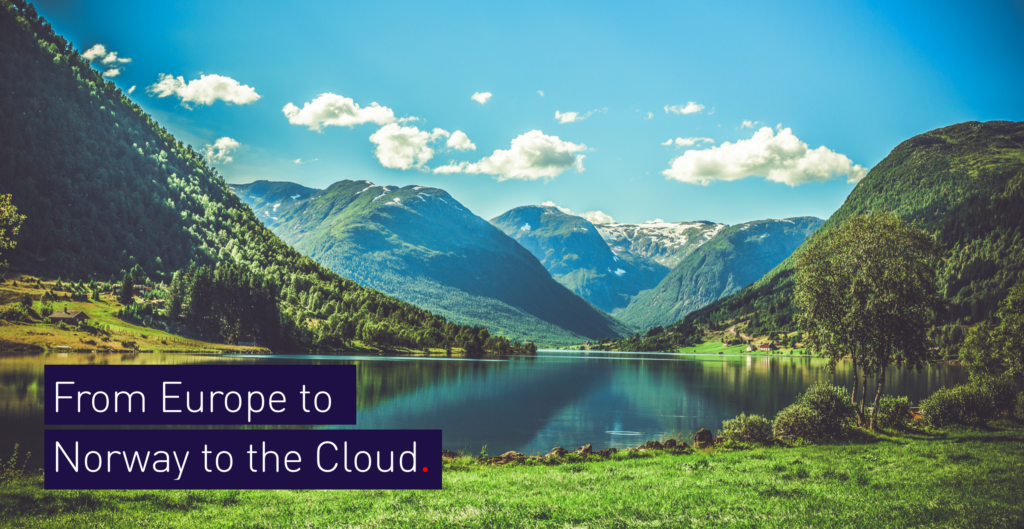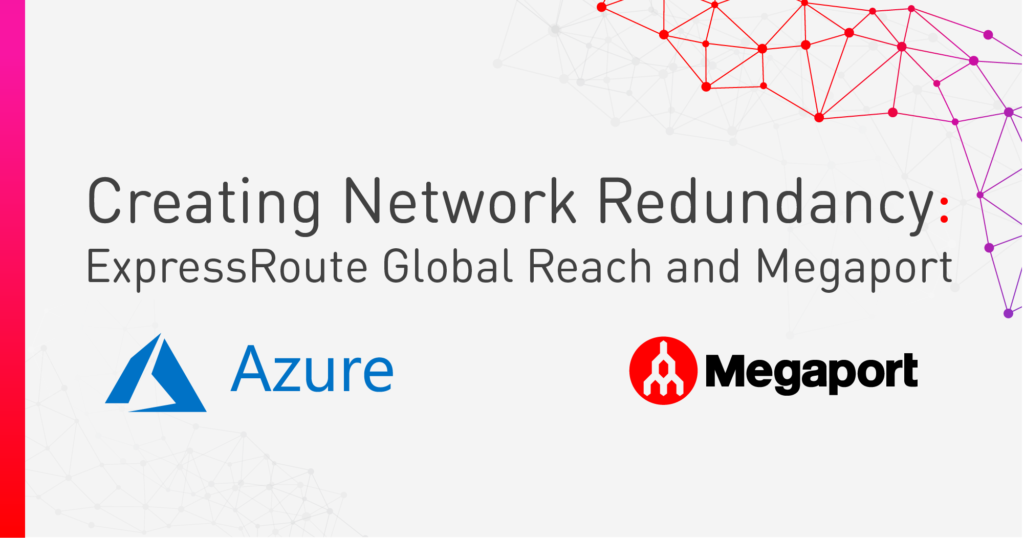
From Europe to Norway to the Cloud
- Cloud networking
- November 23, 2020
- RSS Feed
There are many reasons to colocate in Norway – cheaper, greener colocation for example. Now there is one more, easy cloud connectivity.
Colocation has always been an attractive option for businesses that don’t want or need to keep every IT workload on-premises.
While in decades past the strategy was to find a colocation partner in an area with good connectivity and low energy costs, today there are more factors at play – ranging from security and the supply of renewable energy, to local regulations and cloud access.
This blog explores why so many businesses are now moving their IT workloads to Norway, and how this allows green-minded companies to get sustainable colocation – without compromising their global focus.
Sustainability, costs, and cooling: the modern colo conundrum
We see more businesses move their workloads to data centres in Norway each year. And it’s no wonder why. Norway helps these organisations meet four of the most common IT needs in modern business:
1. Simple sustainability
Between the European Commission’s Sustainable Development Goals, and large technology hyperscalers like Amazon and Microsoft pursuing their own green initiatives, sustainability is a major focus across all levels of the IT world.
The data centre is often one of the biggest energy consumers in the enterprise, but this also makes it the easiest place to make immediate changes that lead to more sustainable operations.
As one of few countries in the EU with 100% renewable energy production, Norway is a hugely attractive option for organisations searching for low-hanging sustainability fruit.
2. Low costs
Norway helps businesses tackle the ongoing costs of their workloads from two angles. On the one hand, Norway’s naturally cold climate means colocation providers have lower cooling costs – and can pass those savings on to customers.
On the other hand, Norway also has the lowest cost of power in Europe. Customers hosting workloads in Norway can save €2.5 to 3 million per MW of capacity per year, compared to colocating in Germany for example.
3. Room to grow
The limits of space have always been a barrier to business growth. But data centres also have to worry about the limits of energy production. For instance, authorities in Amsterdam banned new data centre builds during 2019, fearing the extra load they’d place on the city’s electricity grid.
Norway is in an enviable position compared to other nations in Europe as it currently has an overproduction of power. The country produces more power than it consumes, giving significant headroom for businesses with an eye on digital expansion. And of course, this extra power comes from renewables, allowing for cleaner, greener growth.
4. Ease of doing business
The Norwegian government has made it easy for organisations to start colocating in Norway – and to build out their connectivity from there:
- Norway has strong connectivity to other countries in Europe. For example, a roundtrip from our data centres to Frankfurt takes less than 20ms.
- Ten new fibre cables are being built through Norway that will offer even more robust connectivity with other countries.
- The ‘Norway as a data centre nation’ strategy means data centres don’t pay tax on their equipment, so tax costs and admin aren’t passed on to colocation customers.
- Plans are in place for fibre cables going from Norway to both the US and Asia. These projects will further help colocation customers in Norway reach a global audience.
Yet, cloud connectivity will always be an important consideration
Even with all these benefits convincing businesses to move workloads to Norway, connectivity remains a crucial part of my conversations with potential customers.
Every business out there has a cloud strategy. So, even if the workloads customers colocate in our data centre aren’t currently cloud-bound, prospects always want to know what their cloud connectivity options are for the future.
Of course, every customer I speak to wants to connect to a different combination of cloud providers from here in Norway – many of which don’t necessarily have a data centre or cloud on-ramp here.
That’s where Megaport comes in, and where their partnership with Green Mountain promises real value to our shared customer base. Giving businesses the potential to connect quickly, easily and securely to so many cloud service providers makes Norway an even more attractive option for colocation.

Green Mountain DC1 in Stavanger, Norway
The future is bright for those with a digital footprint in Norway
While Megaport’s ability to connect our colocation customers to the cloud is big news, the partnership also extends to all kinds of workloads. Megaport’s global data centre interconnect service helps organisations join up our data centre with their other endpoints around the world, making it ideal for local workloads that need to privately connect with distant IT resources.
This opens up new possibilities for organisations with a European or global focus. For example, automotive industry leaders will likely see an increasing need to store and process test data from autonomous vehicle trials. As these prototypes need to be tested worldwide, auto designers will want to bring test results from all over the world to a single, central, and low-cost data centre. We imagine that cloud-enabled colocation in Norway can offer exactly what global innovators like this will need.
One more crucial point no modern business can do without: rock-solid security. And I mean this quite literally, as our Stavanger data centre is housed inside a mountain in a former NATO ammunition storage facility. In fact, housing a data centre inside a mountain is a common concept across the Nordics. On top of this, Megaport extends our security focus, offering private connectivity that runs outside of conventional public internet.
While the promise of a greener, more efficient data centre brings IT workloads to Norway, secure, flexible connectivity partners like Megaport help keep them there. And the more customers house their digital footprint here, the more businesses will be able to power their growing data estates with cleaner, more sustainable energy.
Find out more
To find out more, join our webinar, ‘Norway - Your Hybrid Cloud Gateway’ on 26th November 1pm, CET.



